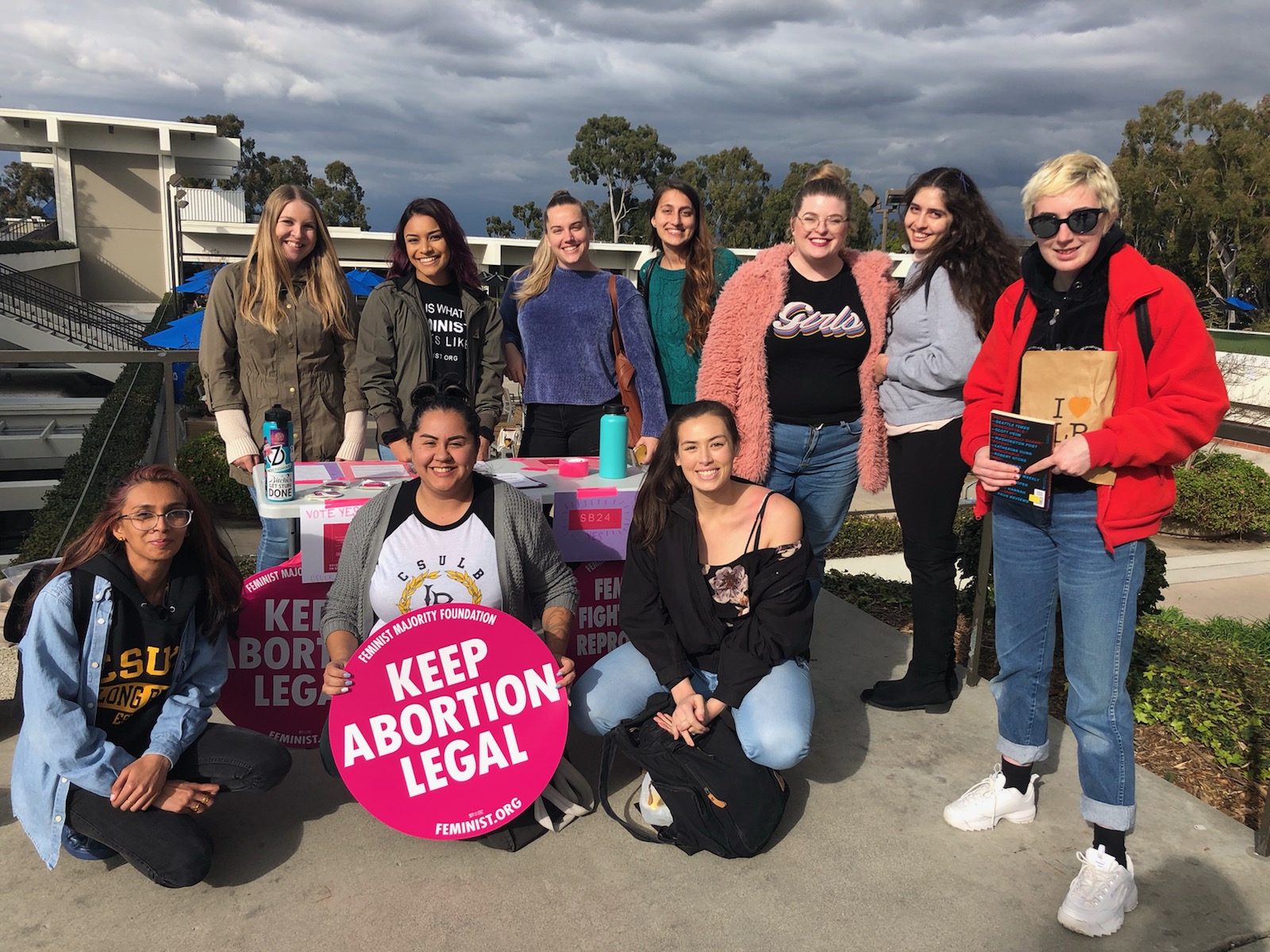Growing up in San Francisco and attending an all girls Catholic high school, I lived in a juxtaposed state between both faithful people and liberal-minded people. At my high school assembly, the spiritual life director of my school – a man – stood up and announced that he hoped to see all of us at the March for Life, because it aligned with the integrity and morals of our school. I was outraged and frustrated, and voiced these concerns to the faculty and my peers. The majority agreed with me, yet maintained that there wasn’t much we could do due to the school’s Catholic affiliation.
Despite the director’s message falling in line with Catholic teaching, he seemed to be an anomaly in my high school community. Yes, we had weekly chapels and mandatory masses but in actuality, many of my peers didn’t strongly identify with Catholicism or Christianity, instead practicing other religions or none at all. With little push back, I was able to start and run a feminist club at my high school; we even dove into discussion about the intersection of faith and feminism. The Bay Area seemed to be a bubble where conservative voices were the minority and I could continuously and comfortably contribute my opinions on a variety of topics – including abortion.
When interviewing to intern at the Feminist Majority Foundation, I was asked whether or not I identified as pro-choice. To me, being pro-choice was a given: who would apply for an internship at a feminist nonprofit without supporting the right to choose? And living in a progressive state, Californians overwhelmingly support abortion access. But six weeks into my internship at FMF, I realized how uninformed I was about the number of anti-choice individuals living in my home state. While California continues to be a positive model for reproductive health, rights, and justice (and we should celebrate that), there are still plenty of people living here who adamantly and aggressively oppose the pro-choice movement.
Although many Californians wish to believe otherwise, there is an active anti-choice presence in our state: from those who protest outside of clinics to those “preaching” against abortion in public places, including college and university campuses. During two consecutive Wednesdays at California State University Long Beach organizing for Senate Bill 24, which would require all public universities in California to provide medication abortion at campus health centers, I witnessed the push back to the bill from the school’s pro-life community: “I beg you to see clearly this is an issue of murder,” one student said at a Student Senate meeting. There were even comparisons of abortion to racism and anti-Semitism. As I spoke in favor of the bill, reminding the student senators that this was not a debate on the legality of abortion (already decided by the Supreme Court) but about access, some shook their head in disagreement. I was disheartened to hear so many students attempt to control the reproductive freedom of Californian students.
On the flip side, we were able to see the strength of community and campus organization. Sitting at our table decorated with “Keep Abortion Safe and Legal” and “Yes on SB 24” signs, we spoke with a variety of students, professors, and community members. Many of them had never heard of SB 24, but were eager to help out once they knew what it was. At times, people would even begin signing our petition before we had explained what SB 24 was – upon reading our posters and “This is What a Feminist Looks Like” t-shirts, they felt compelled to support the bill.

The work we did in conjunction with the Women’s Foundation of California and CSULB student activists pushed the Student Senate to vote in favor of SB 24, which may inspire other campuses to do the same. Although there are many more campuses to organize on and there is much more work to put in before this bill (hopefully) passes, the impact we made from just two days was tangible.
Although I am only eighteen and have yet to attend college, I know I will continue to engage in activism on campus beyond my internship at FMF. I urge others to do the same: stay informed about what’s going on in your community, your state, and your country. Advocate for legislation you support and protest against that which you do not – even if the issue does not directly affect you.
Knowing that California and its previous governor, Jerry Brown, had already turned down an earlier version of the bill (SB 320) is disappointing, but it also highlights the work we still have to do as a state. I encourage my fellow Californian students to read up on the many reasons why SB 24 is so important and find ways in which you can organize in support of the bill on your campuses. If you are interested in getting involved with the SB 24 Just Care campaign check out their website, sign the petition, and share your support for the bill on social media. Beyond that – look to your campus and see if it is opting to be a part of the bill (and if there is a vote on that matter that you can advocate for!) and volunteer to collect signatures.
It is not enough to solely be pro-choice: we must be pro-abortion access as well. Support SB 24 and be an ally to college-aged Californians who deserve both choice and access.
